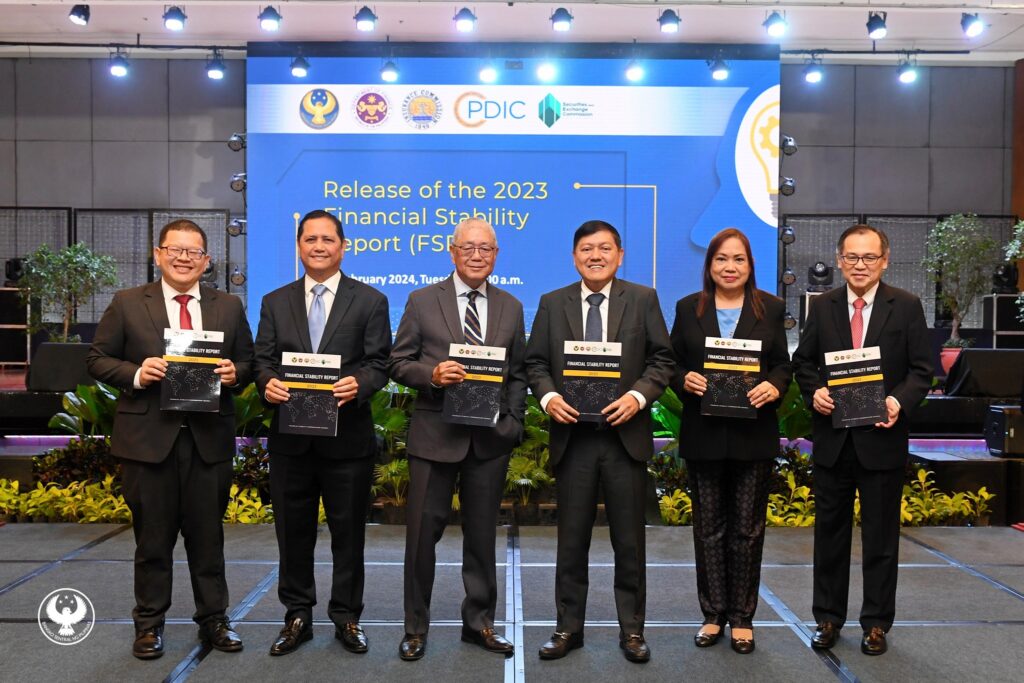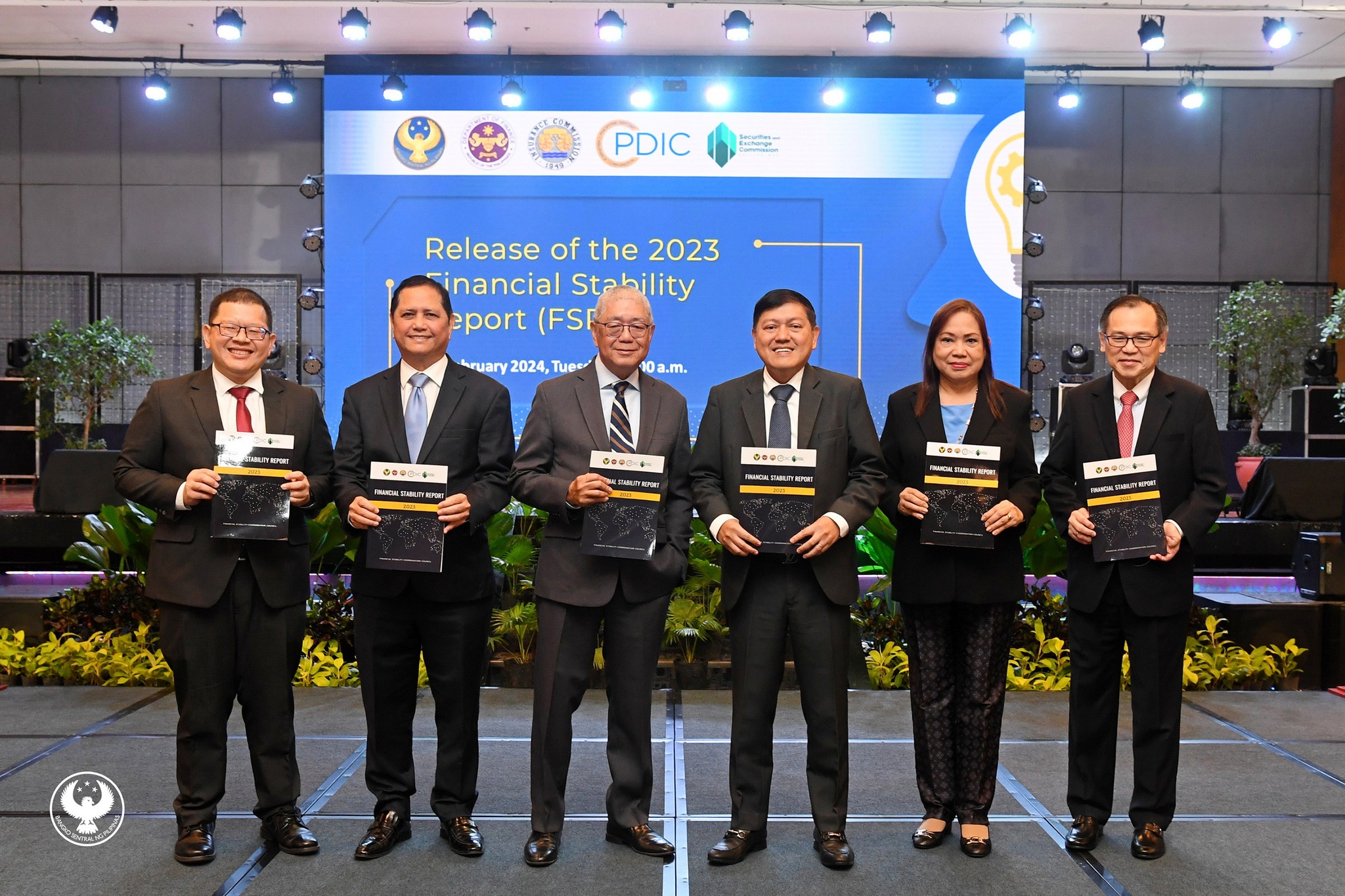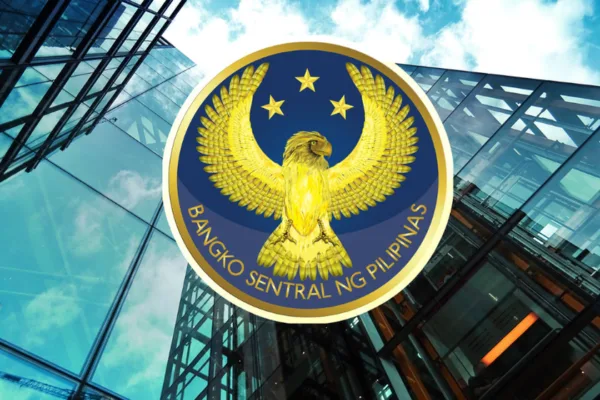The Financial Stability Coordination Council (FSCC) recently held its 38th Executive Committee meeting with no less than Bangko Sentral ng Pilipinas (BSP) Governor Eli M. Remolona, Jr. presiding the gathering.

BSP Governor and Financial Stability Coordination Council Chairman Eli M. Remolona, Jr. (third from left) is shown here while leading the launch of the 2023 Financial Stability Report (FSR) at the BSP head office in Manila. Joining him are members of the FSCC Executive Committee (from left:) SEC Commissioner Kelvin Lester K. Lee, PDIC President Roberto B. Tan, Governor Remolona, SEC Chairman Emilio B. Aquino, PDIC Senior Vice-President Sandra A. Diaz, and FSCC Technical Secretariat Head and BSP Senior Assistant Governor Johnny Noe E. Ravalo.
Held soon after the launch of the 2023 Financial Stability Report (FSR), the council assessed developments in the early part of 2024 and compared them against the trends of the full year of 2023 as reported in the FSR.
The FSR provides an in-depth analysis of recent developments and potential risks that may have financial stability implications in the Philippine financial system. Through the FSR, the FSCC communicates with financial system participants and helps them make better-informed decisions.
It is published by the FSCC composed of the BSP, the Department of Finance, the Securities and Exchange Commission (SEC), the Insurance Commission, and the Philippine Deposit Insurance Corporation (PDIC).
Fresh rounds of uncertainties to affect PH in various ways
In his speech, FSCC Chairman and BSP Governor Eli M. Remolona, Jr. acknowledged that there were fresh rounds of uncertainties in advanced economies since the end of last year. He noted that developments in various countries are likely to affect the Philippines in different ways.
“While global markets have been very fluid, the Philippines has shown its resilience by expanding at a pace that exceeds that of most other economies in the world,” the FSCC Chairman said.
“The FSCC recognizes that expectations at the end of 2023 of early rate cuts by the US Federal Reserve have been tempered by recent US data. That said, the Council weighs the potential spillovers coming from abroad versus the resilience that the local market continues to exhibit,” Remolona added.
The Council assessed during the meeting the funding needs of the corporate sector. Estimates suggest that there is a sizable portion of corporate bonds and loans maturing in 2024. Given the nature of these debts, the FSCC expects a significant amount to be refinanced.
The Council recognizes that the banking sector has been able to provide much of the corporate funding through the years. However, the FSCC also looks to a stronger capital market to complement the banking sector and to better manage various risks.
Concrete developments in the fixed-income market
Over the medium term, the FSCC looks forward to seeing concrete developments in the fixed-income market leading to more access by Philippine corporations to the bond market.
“Enhancing the capital market is an issue that is shared by all members of the FSCC. We recognize that regulators must take a more proactive role in market development and encourage deliberate collaboration among stakeholders,” the FSCC Chairman noted.
While keeping its focus on medium-term goals, the FSCC will continue to assess the funding requirements of corporations. This is a core function in its continuing objective to further economic growth while avoiding possible surprises that can have adverse consequences on the economy.
The FSCC was first convened in October 2011 as a voluntary initiative of the BSP, in partnership with the Department of Finance, Insurance Commission, Philippine Deposit Insurance Corporation, and Securities and Exchange Commission.
In July 2021, Executive Order No. 144 was signed and has since institutionalized the role of the Council in managing systemic risks in the Philippines.







